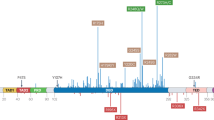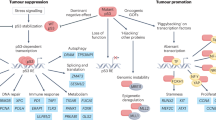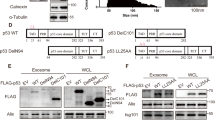Abstract
Loss of normal p53 function was found frequently to interfere with response of cancer cells to conventional anticancer therapies. Since more than half of all human cancers possess p53 mutations, we decided to explore the involvement of mutant p53 in drug induced apoptosis. To further evaluate the relationship between the p53-dependent and p53-independent apoptotic pathways, and to elucidate the function of mutant p53 in modulating these processes, we investigated the role of a p53 temperature-sensitive (ts) mutant in a number of apoptotic pathways induced by chemotherapeutic drugs that are currently used in cancer therapy. To that end, we studied the M1/2, myeloid p53 non-producer cells, and M1/2-derived temperature-sensitive mutant p53 expressing clones. Apoptosis caused by DNA damage induced with γ-irradiation, doxorubicin or cisplatin, was enhanced in cells expressing wild type p53 as compared to that seen in parental p53 non-producer cells; mutant p53 expressing clones were found to be more resistant to apoptosis induced by these factors. Actinomycin D, a potent inhibitor of transcription, as well as a DNA damaging agent, abrogated the restraint apoptosis mediated by mutant p53. These observations suggest that while loss of wild type p53 function clearly reduces the rate of apoptosis, p53 mutations may result in a gain of function which significantly interferes with chemotherapy induced apoptosis. Therefore, to achieve a successful cancer therapy, it is critical to consider the specific relationship between a given mutation in p53 and the chemotherapy selected.
This is a preview of subscription content, access via your institution
Access options
Subscribe to this journal
Receive 50 print issues and online access
$259.00 per year
only $5.18 per issue
Buy this article
- Purchase on SpringerLink
- Instant access to the full article PDF.
USD 39.95
Prices may be subject to local taxes which are calculated during checkout
Similar content being viewed by others
Author information
Authors and Affiliations
Rights and permissions
About this article
Cite this article
Li, R., Sutphin, P., Schwartz, D. et al. Mutant p53 protein expression interferes with p53-independent apoptotic pathways. Oncogene 16, 3269–3277 (1998). https://doi.org/10.1038/sj.onc.1201867
Received:
Revised:
Accepted:
Published:
Issue date:
DOI: https://doi.org/10.1038/sj.onc.1201867
Keywords
This article is cited by
-
Allyl ether of mansonone G as a potential anticancer agent for colorectal cancer
Scientific Reports (2022)
-
p53 isoforms differentially impact on the POLι dependent DNA damage tolerance pathway
Cell Death & Disease (2021)
-
Acquisition of aneuploidy drives mutant p53-associated gain-of-function phenotypes
Nature Communications (2021)
-
Targeting histone deacetylase and NFκB signaling as a novel therapy for Mucoepidermoid Carcinomas
Scientific Reports (2018)
-
Gain-of-function mutant p53 downregulates miR-223 contributing to chemoresistance of cultured tumor cells
Oncogene (2014)



